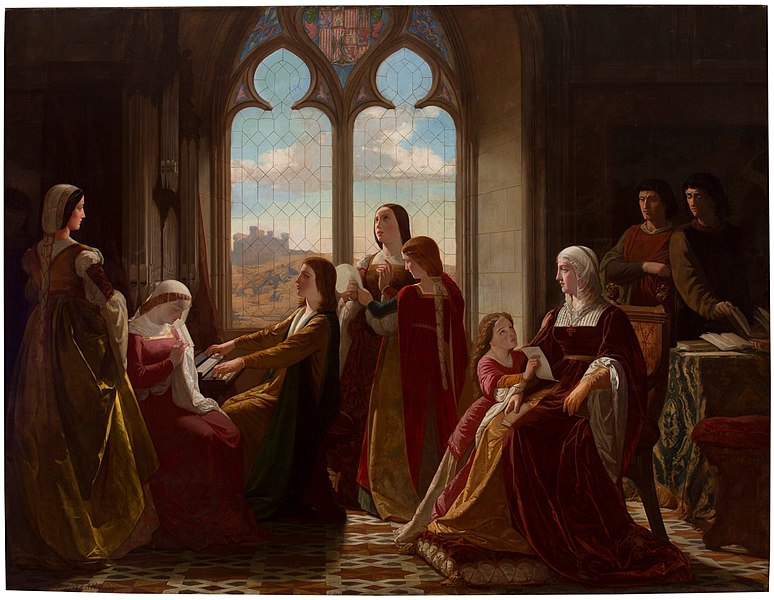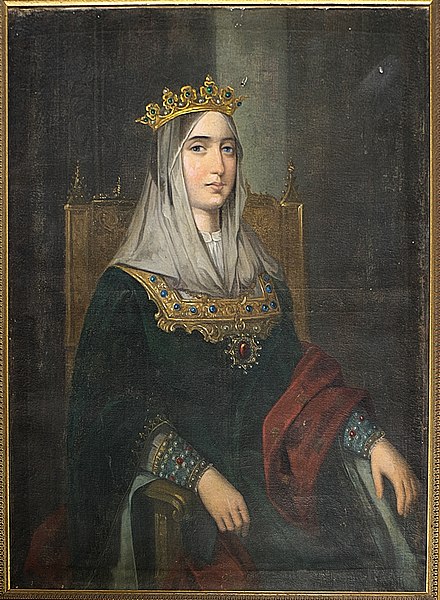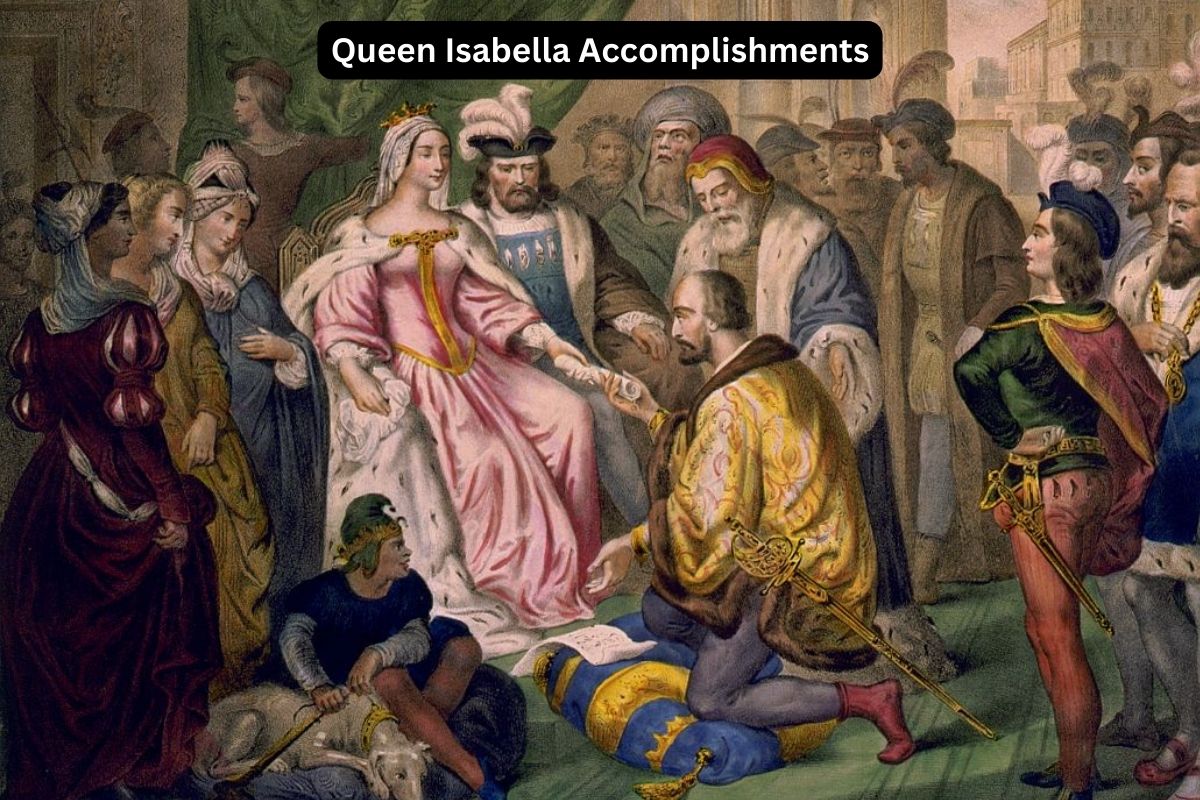Queen Isabella I of Castile, one of the most influential monarchs in Spanish history, left behind a complex legacy marked by both remarkable achievements and contentious policies.
From her pivotal role in the unification of Spain to her support for exploration and cultural patronage, Isabella’s reign transformed the course of European history.
However, her establishment of the Spanish Inquisition and the expulsion of Jews and Muslims from Spain underscore the complexities of her rule.
This article explores the multifaceted legacy of Queen Isabella I, highlighting her accomplishments and examining the controversies that continue to shape perceptions of her reign.
Accomplishments of Queen Isabella
1. End of the Reconquista
Queen Isabella, along with her husband Ferdinand II of Aragon, played a pivotal role in bringing an end to the Reconquista, the centuries-long campaign to drive the Moors (Muslims) out of the Iberian Peninsula.
Their forces captured the last Muslim stronghold of Granada in 1492, marking the completion of Christian domination over the region and unifying Spain under Catholic rule.

2. Establishment of the Spanish Inquisition
In 1478, Queen Isabella and King Ferdinand initiated the Spanish Inquisition, a tribunal established to maintain Catholic orthodoxy and combat heresy within Spain.
Also Read: Queen Isabella Facts
While initially focused on rooting out conversos (Jews and Muslims who had converted to Christianity) suspected of practicing their former faith in secret, the Inquisition later expanded its scope to target other perceived threats to religious purity, leading to significant social and political upheaval.
3. Support for Christopher Columbus
Queen Isabella’s support was crucial in funding Christopher Columbus’ ambitious voyages of exploration to find a westward sea route to Asia.
Despite skepticism from many quarters, Isabella provided Columbus with the financial backing he needed, leading to his historic voyage in 1492, which ultimately resulted in the European discovery of the Americas.
Also Read: Facts About King Ferdinand and Queen Isabella
This significant achievement reshaped world history, leading to the colonization of the New World by European powers and fundamentally altering global trade, culture, and politics.
4. Patronage of the Arts and Sciences
Queen Isabella and King Ferdinand were notable patrons of the arts and sciences during their reign. They supported various scholars, artists, and explorers, making their court a center of intellectual and cultural activity.
Isabella’s patronage helped foster advancements in literature, music, architecture, and scientific inquiry, contributing to the flourishing of Renaissance culture in Spain.

5. Administrative Reforms
Isabella implemented significant administrative reforms aimed at strengthening royal authority and centralizing governance in Spain.
These reforms included the establishment of royal councils and bureaucracies to manage affairs of state, standardizing laws and legal procedures across the kingdom, and creating a more efficient system of taxation and revenue collection.
Isabella’s efforts helped to consolidate power under the crown and lay the foundation for a more unified and centralized Spanish state.
6. Expansion of Royal Power
Queen Isabella worked to expand royal power by curbing the influence of the nobility and clergy. She sought to assert greater control over the various regions and territories of Spain, reducing the autonomy of regional nobles and ecclesiastical authorities.
Isabella’s efforts to centralize authority strengthened the monarchy and paved the way for greater political stability and unity within the kingdom. However, her policies also sparked conflicts and tensions with powerful noble families and religious institutions, leading to periods of unrest and resistance.
7. Support for Education
Queen Isabella supported the advancement of education and literacy in Spain. She promoted the establishment of schools and universities, providing patronage to institutions such as the University of Salamanca, which became renowned centers of learning during her reign.
Isabella recognized the importance of education in fostering intellectual growth and societal development, and her efforts contributed to the expansion of knowledge and scholarship in Spain.

8. Promotion of Catholicism
Isabella was deeply devout and worked to promote Catholicism throughout her kingdom. She supported missionary endeavors aimed at converting indigenous peoples in newly discovered territories, as well as efforts to combat heresy and maintain religious orthodoxy within Spain.
Isabella’s fervent piety and commitment to Catholicism shaped many aspects of her reign, influencing policies related to religious tolerance, cultural assimilation, and social cohesion.
9. Reforms in Marriage and Inheritance Laws
Isabella implemented reforms aimed at improving the legal rights and protections of women in matters of marriage and inheritance. These reforms included abolishing forced marriages and granting women greater autonomy and control over their property and estates.
Isabella’s efforts to strengthen the legal status of women reflected her commitment to promoting justice and equity within Spanish society, although the full realization of these reforms varied depending on social class and regional customs.
10. Expulsion of Jews and Muslims
One of the darker aspects of Queen Isabella’s reign was the expulsion of Jews and Muslims from Spain. In 1492, Isabella and Ferdinand issued the Alhambra Decree, which mandated the expulsion of Jews who refused to convert to Christianity.
This decree resulted in the forced expulsion of hundreds of thousands of Jews from Spain, leading to widespread persecution and suffering. Subsequently, in the early 16th century, Isabella and Ferdinand also implemented policies targeting Muslims, resulting in the forced conversion or expulsion of Muslim populations from Spain.
These actions had profound and enduring consequences, contributing to the cultural and demographic transformation of Spain and leaving a legacy of religious intolerance and persecution.
